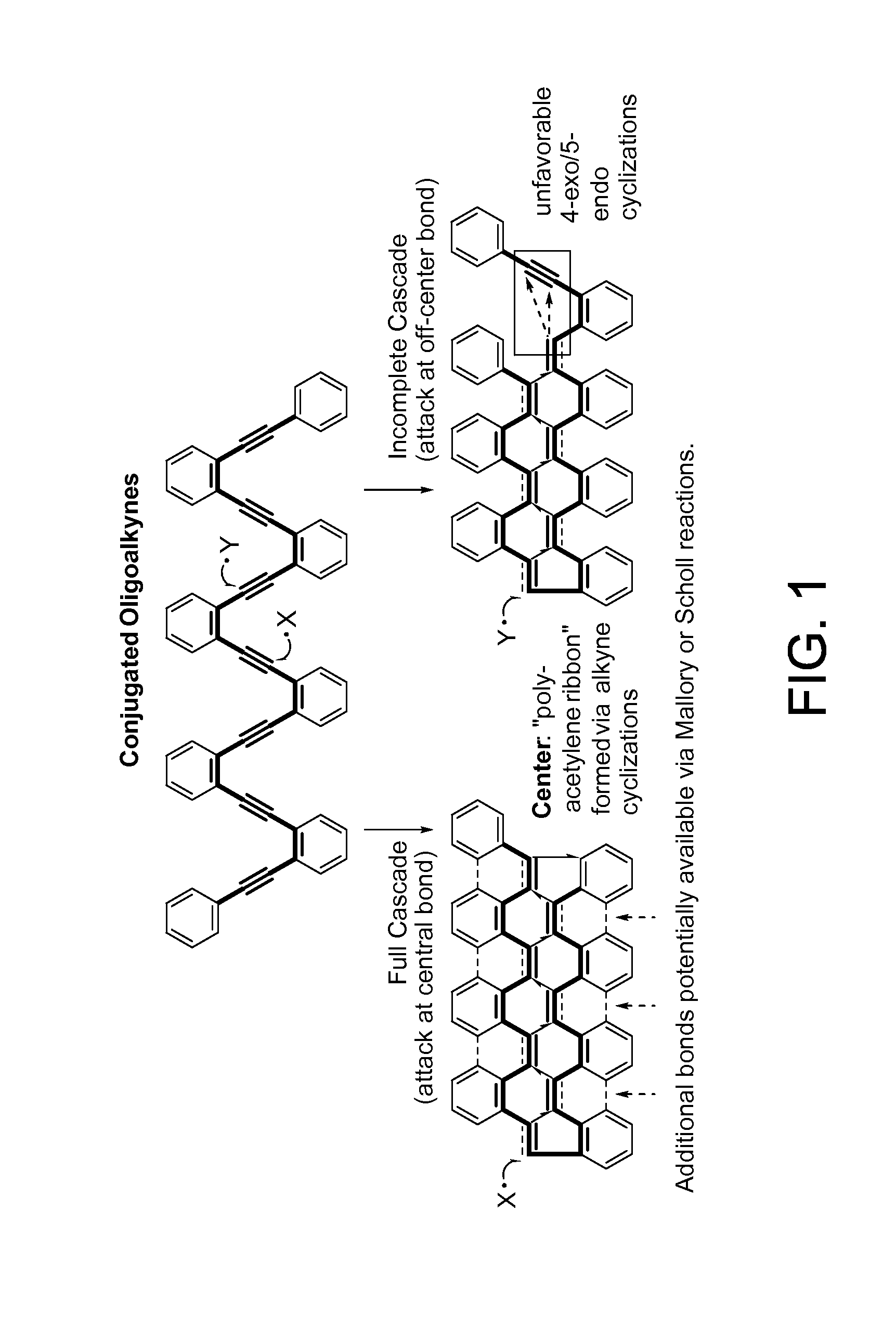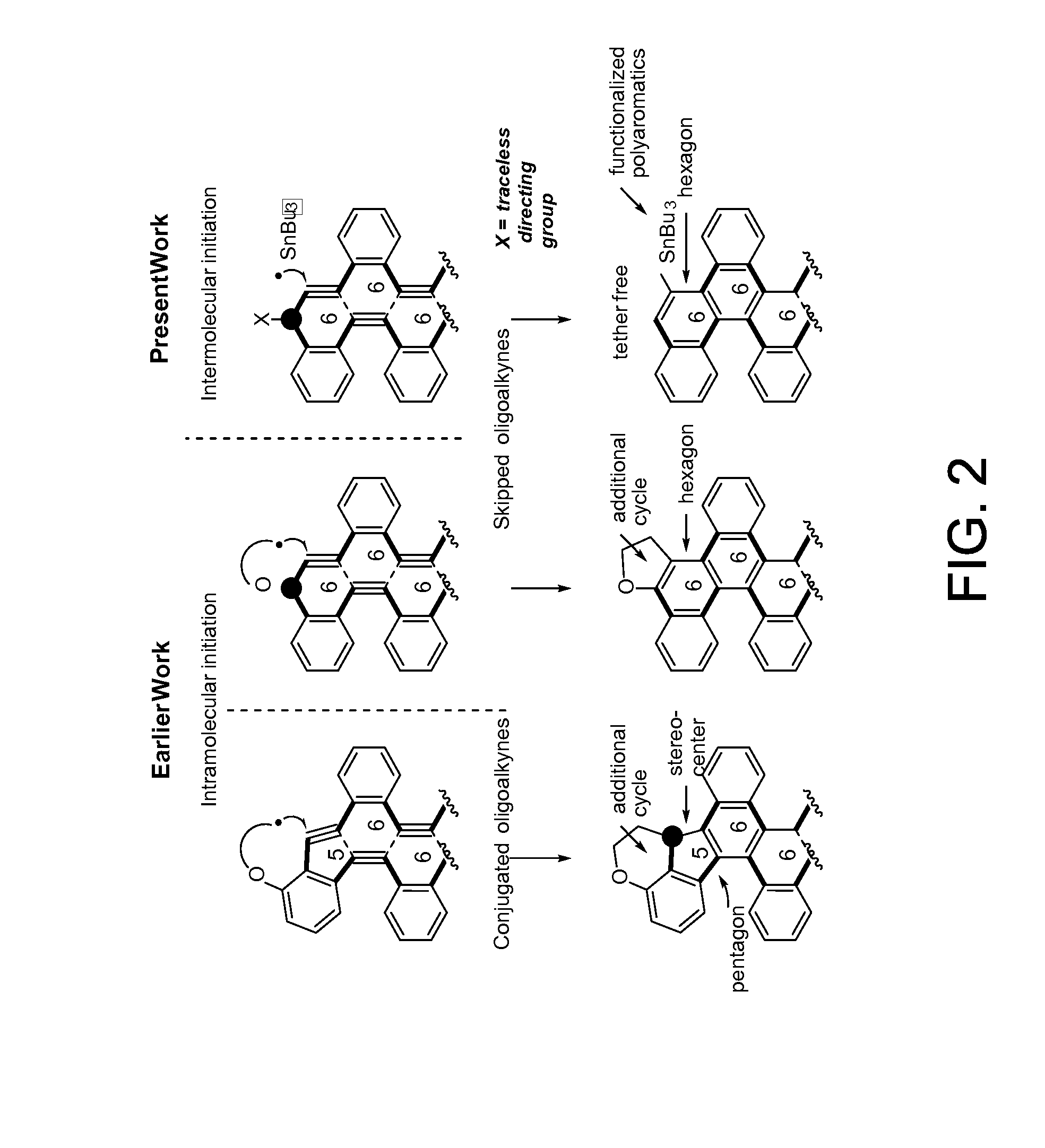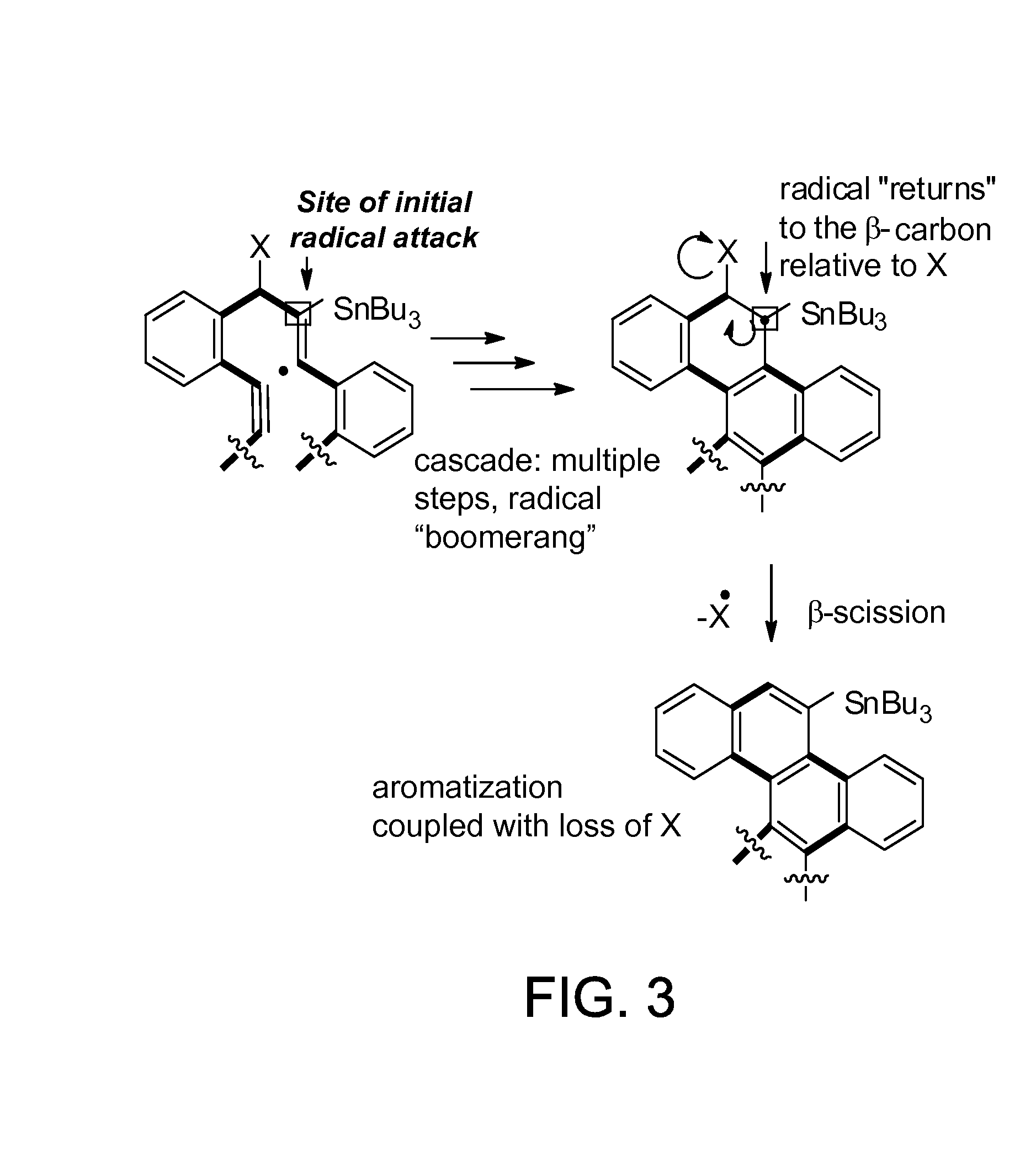Traceless directing groups in radical cascades: from oligoalkynes to fused helicenes without tethered initators
a radical cascade and direct group technology, applied in the field of preparing a polycyclic aromatic compound, can solve the problems of difficult to achieve chemoselectivity, unsatisfactory solution, and often unavoidable use of such groups
- Summary
- Abstract
- Description
- Claims
- Application Information
AI Technical Summary
Benefits of technology
Problems solved by technology
Method used
Image
Examples
examples
[0204]The following non-limiting examples are provided to further illustrate the present invention.
[0205]Unless otherwise noted, all reactions were carried out under nitrogen atmosphere in oven-dried glassware using standard syringe, cannula, and septa apparatus. Benzene, diethyl ether, toluene, tetrahydrofuran, and hexane were dried with a dry solvent system before use. Dichloromethane was dried over CaH2 before use. Reagents were purchased from commercial sources and used without purification, unless otherwise stated. Reactions were magnetically stirred and monitored by thin layer chromatography carried out on 0.25 mm silica gel plates (60f-254) using UV light as visualizing agents and ethanolic solution of phosphomolybdic acid and heat as developing agents. Column chromatography was performed using Kieselgel 60 (70-230 mesh) or Kieselgel 60 (230-400 mesh). Preparative thin-layer chromatography (PTLC) separations were carried out on 0.25 or 0.55 mm silica gel plates (60F-254).
Synt...
PUM
 Login to View More
Login to View More Abstract
Description
Claims
Application Information
 Login to View More
Login to View More - R&D
- Intellectual Property
- Life Sciences
- Materials
- Tech Scout
- Unparalleled Data Quality
- Higher Quality Content
- 60% Fewer Hallucinations
Browse by: Latest US Patents, China's latest patents, Technical Efficacy Thesaurus, Application Domain, Technology Topic, Popular Technical Reports.
© 2025 PatSnap. All rights reserved.Legal|Privacy policy|Modern Slavery Act Transparency Statement|Sitemap|About US| Contact US: help@patsnap.com



